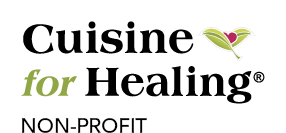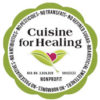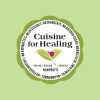Which came first? The chicken or the egg? That is the age old question. If I try to answer we might be here the better part of this century.
We do know now that the chicken makes the egg, but all eggs are not created equal. What do all the labels mean?
Here is a quick lesson on egg lingo:
Grade A / Grade AA
Grade AA and Grade A indicate eggs that have thick whites, yolks that are free from defects, and clean shells.
Organic
Fed with organic feed (no additives, animal byproducts or GMO), these hens live cage free with access to the outside. Organic certification also means maintaining of high animal welfare standards. Hens cannot been treated with antibiotics, growth hormones, pesticides, fertilizers from synthetic ingredients or sewage sludge, bio-engineering or ionizing radiation. The USDA inspects the farm before they are allowed to use the “organic” label.
Free Range
This term has been approved by the USDA for animals that were raised in a sheltered facility with unlimited access to food, water, and access to the outdoors. It does not necessarily mean the animal actually went outside, only that there was a door to the outside. Free range gives no indication of the outdoor conditions.
Cage-Free
This simply means the animals were not kept in cages. They are still in an enclosed facility, but with unlimited access to food and fresh. Cage free does not give any indication of the conditions of the facility they’re enclosed in. As I once believed, cage-free does NOT mean the animals were free to roam in pastures, or that they have access to outdoors.
Pasture-Raised
The USDA has not developed a definition for this term yet, however many farmers use it to distinguish themselves from “free range” farms. Pasture raised means animals are free to roam around outdoors with unlimited access to food, fresh water, and indoor shelter in case of inclement weather. This different from “free range” in that pasture-raised animals spend more time outdoors than they do indoors. Though it’s often the case, don’t assume the pasture-raised animals were not given antibiotics or growth hormones or whether or not the animals were given organic feed or GMO.
Antibiotic Free Eggs
According to the USDA, this label can be used on beef and poultry products, provided that the producer supplies “sufficient documentation … that the animals were raised without antibiotics.”
Omega-3
An egg with this label indicates the hen is fed a diet enriched with fish oil and flaxseed to have a higher amount of heart healthy Omega-3 fatty acid. How much higher? The egg producers aren’t required to provide that information.
Certified Humane
This label doesn’t guarantee that the hens have ever seen the light of day. Sure, the birds are ‘uncaged’ but they can be contained inside. There ARE requirements for such things as stocking density, number of perches and laying boxes.
A study done by Mother Earth News, found that compared to conventional American eggs, real free-range eggs have less cholesterol and saturated fat, plus more vitamins A and E, beta carotene and polyunsaturated omega-3 fatty acids.
A little less confused now? The bottom line according to the labels, the eggs to buy are certified humane, organic, and pasture raised. We have a moral obligation to be good stewards of this Earth and all its inhabitants. I can’t even begin to tell you the horrors that main stream conventional chickens can suffer and it is wrong- no two ways about it. So- now we know what to buy- why should we eat eggs?
The Perfect Protein:
Did you know that many nutritionists consider the egg a perfect source of protein? Consider that a single, whole egg contains, on average, 6-grams of protein—that’s including all 9 essential amino acids that the body can’t produce on it’s own.
A Harvard School of Public Health study found that weekly egg consumption may help prevent both heart attack and stroke, or more specifically stop the formation of blood clots.
Nutritionists who once cautioned against the consumption of egg yolks because of the fat content are reconsidering their claims. While egg yolks contain only fraction of saturated; they make up for it in good fats, which doesn’t promote high bad cholesterol.
You may be more likely to link eggs to ovarian health. However, regular ovule consumption was liked to decreased risk breast cancer by almost 24-percent in a study funded by the US National Institutes of Health (or NIH).
If you miss the feeling of sunshine on your skin or suffer from seasonal affective disorder (or SAD) in the gloomier months, eating eggs regularly may help. How? Eggs are one of the few food sources of naturally-occurring vitamin D (aka: the sunshine vitamin).
Skip the popcorn and nachos next time you hunker down for a study session. If you reach for a hard-boiled egg instead, you’ll reap the benefits of real brain food that contains choline and a nutrient that stabilizes both the central nervous system and the brain.
And if that isn’t enough- you eat them hot of cold, sitting or on the run.
Try one of our new Protein Boxes! They are fabulous!
Happy Healthy Eating! Dana
http://www.activebeat.com/diet-nutrition/get-cracking-8-health-secrets-contained-in-eggs/?streamview=all
jillconyers.com/…/what-does-organic-cage-free-free-range-eggs–mean









